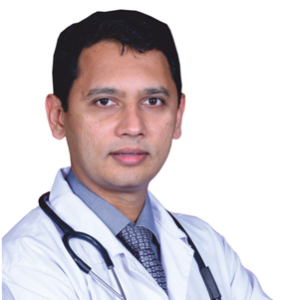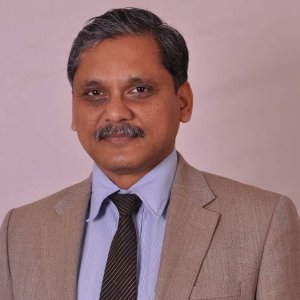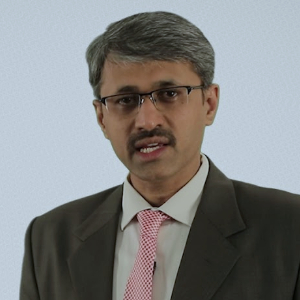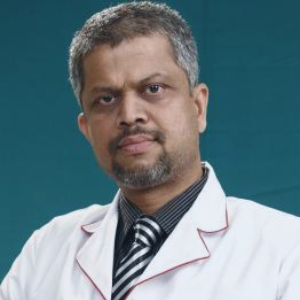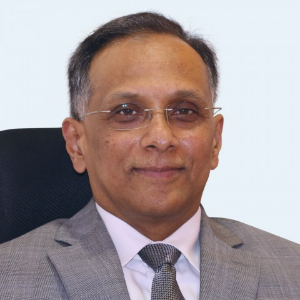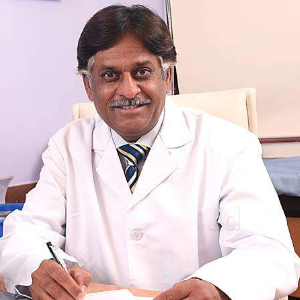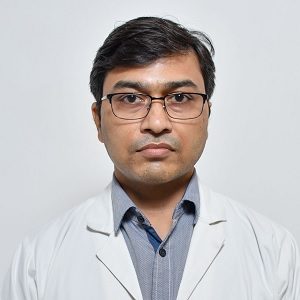Best Doctors in India for Craniotomy
- Neurosurgeon, Bengaluru, India
- Over 22 years’ experience
- Gleneagles Global Hospital Bengaluru
Profile Highlights:
- Dr. Madhusudan H V is an expert Neurosurgeon in South India with 22+ years of experience in neuro and spine surgery.
- With a specialization in minimally invasive neurosurgeries, Dr. Madhusudan holds the credit for more than 7000 neurosurgeries. He also finds interest in endoscopic interventions and frameless navigations.
- Neurosurgeon & Spine Surgeon, Bengaluru, India
- Over 20 years’ experience
- Fortis Hospital Banerghatta Bengaluru
Profile Highlights:
- Dr. Prahraj S S is a leading Neurosurgeon who specializes in all types of neurological surgeries and has performed over 6000 neurosurgeries till date along with complex cranial and spine surgeries.
- He is one of the most renowned neurosurgeons in the country and has provided his services to some of the premier medical institutes in India such as NIMHANS where he performed a large number of spinal surgeries.
- Neurosurgeon & Spine Surgeon, Bengaluru, India
- Over 15 years’ experience
- Gleneagles Global Hospital Bengaluru
Profile Highlights:
- Dr. Praveen K S is a highly qualified neurosurgeon with over a decade of experience in handling all kinds of neurological diseases and disorders.
- He specializes in Pediatric Neurosurgery, Neuro-Oncology, Endoscopic neurosurgery, Aneurysms, and Neuro- Trauma and has performed over 4000 neurosurgeries in his career.
- Neurosurgeon & Spine Surgeon, Mumbai, India
- Over 20 years’ experience
- Wockhardt Hospital Mumbai
Profile Highlights:
- Dr. Rahul Modgi is a highly established neuro and spine surgeon in Mumbai specializing in all types of brain and spine surgeries.
- Dr. Rahul Modgi’s name has been recorded in the Limca Book of Records in 2014 when he removed the heaviest iron rod from the brain of a 17-year-old patient. He has also performed various other risky surgeries for which he has greatly appreciated.
- Neurosurgeon, Bengaluru, India
- Over 30 years’ experience
- Fortis Hospital Banerghatta Bengaluru
Profile Highlights:
- Dr. Rajakumar V Deshpande is a renowned Neurosurgeon in Bengaluru. He performed the first pedicle screw fixation surgery for a spine injury in Bangalore.
- Dr. D V Rajakumar specializes in endoscopic neurosurgeries and has performed some of the most complex brain and spine surgeries through the endoscopic approach. His other areas of interest include minimally invasive neuro surgeries, management of cerebrovascular diseases, and brain tumor surgeries.
- Neurosurgeon, Mumbai, India
- Over 20 years’ experience
- Gleneagles Global Hospital Parel Mumbai
Profile Highlights:
- Dr. Suresh Sankhla is an accomplished Neurosurgeon in Mumbai specializing in endoscopic neurosurgery and onco-neurosurgery.
- Dr. Sankhla acquired his training in neurosurgery under the guidance of the best trainers from well-known medical institutes and hospitals in Ireland, UK, USA as well as India.
- He has an equal interest in research and has published more than 100 articles, papers, and abstracts in renowned national and international peer-reviewed journals.
- Neurosurgeon, Gurugram, India
- Over 25 years’ experience
- Artemis Hospital, Gurgaon
Profile Highlights:
- Dr. Pawan Goyal is a renowned neurosurgeon in Gurugram with 25 years of experience.
- He gained expertise in endoscopic neurosurgery, minimally invasive spine and neurosurgery, all brain and spine tumors, head and spine injuries.
Best Hospitals in India for Craniotomy
Hospital Highlights:
- Apollo Hospitals is a private healthcare group in India, with its headquarters based in Chennai. Established in 1983 by Dr. Prathap C. Reddy, the group offers a wide range of medical treatments and services across various specialties.
- It is renowned for emphasizing innovation and utilizing cutting-edge medical technologies into patient treatment.
- Known as India’s first corporate hospital, Apollo Hospitals is often credited for pioneering the private healthcare revolution in the country.
- With clinics and hospitals located all throughout India, Apollo Hospitals is a nationwide healthcare organization. Its presence can also be found in foreign countries.
- Preventive health examinations, medical and surgical treatment, and diagnostic centres are just a few of the services that the Apollo group provides.
- The group has several centres of expertise, including Cardiac Sciences, Neurosciences, Orthopedics, Emergency Care, Cancer Care, and Organ Transplantation.
- City: Chennai, India
Hospital Highlights:
- RIMC is a multi-specialty hospital in a sprawling area of 36 acres located in Chromepet, Chennai, Tamil Nadu, India.
- The facility has 450 beds including 130 critical care beds, 9 operating rooms, modern reference laboratories and radiology services, and is conveniently located near road, rail and air transportation.
- RIMC is led and managed by world-renowned physicians committed to healthcare.
- RIMC offers the broadest range of clinical care, education, and research. The hospital offers state-of-the-art technology and modern treatment facilities designed to provide health care at an affordable cost.
- Rela Institute is driven by patient needs, comfort and confidence.
- City: New Delhi, India
Hospital Highlights:
- Fortis Hospital in Shalimar Bagh is a multi-super specialty hospital that strives to provide world-class patient care by leaving no stone unturned.
- Fortis, Shalimar Bagh, with 262 beds and a 7.34-acre footprint, provides the best level of medical care through its team of doctors, nurses, technicians, and management professionals.
- City: Bengaluru, India
Hospital Highlights:
- Established in 2007, the Apollo Hospitals Bangalore is a 300-bed multispecialty hospital situated in Bannerghatta Road, Bangalore.
- Equipped with the state-of-the-art technology, it is a leading hospital dedicated to providing healthcare needs to patients with compassion and expertise.
- It is the first hospital to have completed the highest number of Robot Assisted Heart Surgeries in India.
- Over the years, it has successfully conducted some of the rarest medical procedures such as spinal angiolipoma excision, autologous chondrocyte implantations, and tibial tuberosity shift with MPSL reconstruction.
- The Apollo Hospitals Bangalore has the reputation of performing the greatest series of airway stents in the country.
- Additionally, the hospital is known for providing comprehensive treatment in specialties such as gastroenterology, urology, gynecology, oncology, colorectal surgery, etc.
- The “The Minimal Access Surgery Centre” (MASC), one of Apollo Hospitals, Bangalore’s premier Centres of Excellence, is devoted to the use of minimally invasive surgical procedures.
- In 2013, THE WEEK-A C Nielsen, Best Hospital Survey ranked Apollo Hospitals Bangalore as the 2nd best multi-speciality hospital in Bangalore.
- City: Mumbai, India
Hospital Highlights:
- Gleneagles Global Hospital The 450-bed facility comprises of 17-stories, housing state-of-the-art infrastructure, and advanced medical care facilities.
- The hospital offers end-to-end clinical, surgical, and diagnostic services. It is equipped with a team of eminent medical professionals aided by qualified nurses and medical staff
- The Hospital offers advanced Endoscopic procedures, Hepatobiliary and Liver Surgeries, Surgical and Medical Gastroenterology, Bariatric Surgery, and Robotic surgery.
- The hospital is a center of excellence for Orthopedics, Joint Replacement, Knee Replacement, and Hip Replacement surgery.
- City: Hyderabad, India
Hospital Highlights:
- CARE Hospitals were established in the year 2000, by CARE Group.
- The multispecialty hospital has 435 beds, including 120 critical care beds, with an annual inflow of 180000 outpatients and 16,000 in-patients.
- The hospital provides specialty medical services in Cardiology, Cardiothoracic Surgery, Pediatric Cardiology, Pediatric Cardiothoracic Surgery, Neurology, Neurosurgery, Nephrology, and Urology.
- The hospital has the first dual source, 128 slice CT scanner (for high precision cardiac imaging) – the first of its kind in south India.
- The hospital offers a wide range of accommodation facilities for the convenience of its varied patient base, ranging from general wards to super deluxe rooms.
- City: Mumbai, India
Hospital Highlights:
- Fortis Hospital in Mulund is a 315-bed multi-speciality tertiary care hospital with five JCI accreditations that offers a wide variety of diagnostic and treatment services. The Fortis Hospital in Mulund delivers patient-centred treatment with cutting-edge technology, highly skilled and experienced surgeons, and paramedical staff.
- This institution houses Maharashtra’s largest multi-organ transplant centre. It is also the first heart transplant centre in western India to conduct 100 or more consecutive heart transplants in under four years. It is the only hospital in the city to have multi-organ transplants and has handled the youngest patient for angioplasty. Fortis Hospital Mulund now boasts the first advanced surgical robot in central Mumbai.
- Cardiology and heart surgery, urology, nephrology, neurosciences, orthopaedics, digestive care, emergency and critical care, and maternity care are among the services provided by the hospital.
- City: New Delhi, India
Hospital Highlights:
- Manipal Hospitals, Dwarka, is a super-specialty hospital in Dwarka, New Delhi, which is a part of Manipal Hospitals Group.
- The hospital aims to provide the best treatment on par with international standards at a fraction of the cost.
- Equipped with 380 beds, the hospital is also one of the new age hospitals which are equipped fully with state-of-the-art infrastructure, cutting-edge technology as well as the latest and advanced clinical practices. The hospital also has 13 modular Operation theatres with 118 beds which are solely meant for critical care.
- The hospital comprises internationally acclaimed doctors and highly professional and experienced hospital and medical staff who are able to provide preventive, therapeutic, and diagnostic services all under one roof.
- City: Chennai, India
Hospital Highlights:
- Located in Chennai, India, MGM Healthcare is a top multispecialty hospital that provides all medical services under one roof.
- Since its founding in 2019, MGM Healthcare has quickly become a leading national referral centre, creating several innovative flagship initiatives.
- MGM Healthcare combines next-generation medical and digital technologies to provide better patient results.
- With 12 centres of excellence, more than 400 inpatient beds, 100 intensive care unit beds, and 24/7 emergency care, MGM Healthcare leaves no chance in redefining the patient experience in Chennai.
- MGM Healthcare boasts 250+ expert doctors across 30+ departments, including Cardiology, Pulmonology, Neurology, Obstetrics & Gynaecology, and more.
- They house 12 specialized Centres of Excellence, including Neurosciences, Orthopaedics, and Multi-Organ Transplantation.
- Their team of doctors, nurses, and paramedics works together to give every patient individualized treatment.
Hospital Highlights:
- Lilavati Hospital & Research Centre is India’s premier multi-speciality tertiary care hospital and has been recognised as a global medical excellence centre.
- Lilavati Hospital & Research Centre has built an unrivalled level of trust with its patients over the years, thanks to a solid foundation that comprises cutting-edge facilities, the best medical competence, research, education, and charity endeavours.
- The hospital is quite proud of the fact that it now serves patients from all kinds of backgrounds, not just from the United States but from all around the world.
- The hospital has a total of 323 beds, one of the largest Intensive Care Units (ICUs), 12 Operation Theatres with modern amenities, over 300 consultants, and almost 1,800 personnel.
Craniotomy
Types of craniotomy
Craniotomies are of various types depending on the name of the technique or the location of the surgery:
- Stereotactic craniotomy– This type of craniotomy involves the use of an MRI or a CT scan. Your doctor will use imaging tests for creating 3-D images of your brain that will allow them to differentiate between healthy tissue and normal tissue. The technique helps to figure out the best spot for an incision on the scalp and easily make smaller cuts for performing minimally invasive procedures.
- Endoscopic craniotomy- Your doctor will make a small cut into your skull and insert an endoscope (small lighted device) with a camera.
- Keyhole craniotomy- Meant for removing brain tumors, it is a minimally invasive procedure. It has a shorter recovery time and causes less scarring. Your doctor will make a small incision behind the ear for removing the brain tumor.
- Awake craniotomy- You will stay awake during this surgery as your doctor asks you some questions for monitoring the activity of your brain. He or she will observe which parts of your brain are involved in vision, speech, and movement to about them at the time of the surgery.
- Supra-orbital eyebrow craniotomy- This procedure helps to remove brain tumors present in your front brain by allowing your surgeon to make a small incision in your eyebrows. It causes minimal scars as it is a minimally invasive approach.
- Frontotemporal or Pteronial craniotomy- The frontal, temporal, parietal, and the sphenoid bones meet at the pterion in the skull. The pterion is located near your temple on the side of the skull. The procedure involves the removal of a part of the pterion by making an incision behind the hairline. This lets the surgeon gain access to several parts of the brain.
- Orbitozygomatic Craniotomy- It finds its use in treating aneurysms and difficult tumors. Your surgeon will make a small cut behind your hairline and remove a part of the bone temporarily. This creates a curve of your orbit, cheek, or eye socket. Your surgeon will be able to reach deeper areas of your brain and there will be minimal risk of brain damage.
- Posterior fossa craniotomy- If a tumor is present in the posterior fossa of the skull, it may put pressure on the spinal cord, cerebellum, and brainstem. The procedure helps to remove this tumor while alleviating the pressure. Your surgeon will do this by making an incision at your skull base.
- Translabyrinthine craniotomy- It involves an incision behind your ear for removing a part of your mastoid bone & the semicircular canals that help to balance. Your doctor can also remove an acoustic neuroma with this procedure. There is a lower risk of facial nerve damage with this surgery.
- Bifrontal craniotomy- It helps to remove hard tumors present at the front of your brain and when the tumor removal is complex through minimally invasive surgery. Your doctor will make an incision behind the front hairline for removing a piece of bone forming the curve of the forehead. This helps your doctor to gain access to the front of your brain.
Reasons for the procedure
Your doctor will perform the procedure for treating:
- Infection
- Blood clot
- Tear in the dura mater
- Intracranial pressure
- Tumor
- Cerebral edema or swelling
- Brain abscess
- Arteriovenous malformation
- Epilepsy
- Aneurysm
- Bleeding from the skull
- Skull fracture
- Arteriovenous fistula
What to expect?
Before the procedure
Your neurosurgeon may call you for multiple appointments before the surgery and use various tests for confirming if you can undergo the procedure without any risks. These tests may be a physical examination, blood tests, neurological examination, and CT scan or MRI scan. Your surgeon will also be able to determine the site of surgery according to the type of Craniotomy and your medical condition. You will have to start fasting a night before your surgery and wash your hair with an antiseptic shampoo.
During the procedure
The team of doctors will ask you to remove all the jewelry and accessories that you might be wearing and change your clothing with a hospital gown. You will be asked to lie down on the operating table as a device holds your head in place. The staff will insert an IV line into your arms, a urinary catheter into your urinary bladder, and administer general anesthesia to you. When you fall asleep due to anesthesia, your surgeon will shave your hair present at the surgical site and also clean the area for minimal risk of infection.
Your surgeon will cut your scalp while using a drill & saw to remove the bone flap. He or she will incise the dura mater to gain access into your brain and perform the procedure while removing tissue samples, wherever needed. The team of surgeons will stitch the tissues together and replace the bone flap with wires, plates, or stitches. Next, they will apply a sterile bandage after stitching.
Results
The nurses will take you to the recovery unit and monitor your vitals. If they are stable, they will shift you to your hospital room and ask you to stay there for a week. You might need to elevate your head for managing the swelling and will get oxygen for a few days. You will have to perform deep breathing exercises for treating pneumonia and need commission devices on your legs for preventing blood clots. You will wear the catheter for a few days and the team of doctors will check you regularly for the proper functioning of your brain. You may need to take medications and take rest for at least 6 weeks. Additionally, you might need physiotherapy and speech therapy for regaining the normal functions of walking, talking, and strength.
Risks
Certain factors are contributing to the risks associated with the Craniotomy procedure including your medical condition. The most common risks of Craniotomy procedure may be:
- Head scarring
- Facial nerve damage
- Seizures
- Muscle weakness
- Dent where the bone flap was removed
- Damage to the sinuses
- Brain swelling
- Stroke
- Injury due to the head device
- Infection of the skin or bone flap
- The leaking of the CSF or the cerebrospinal fluid
- Speech and memory problems
- Coma or paralysis
- Balance issues
- Bleeding or blood clots
- Unstable blood pressure
- Pneumonia
- Reaction to anesthesia

